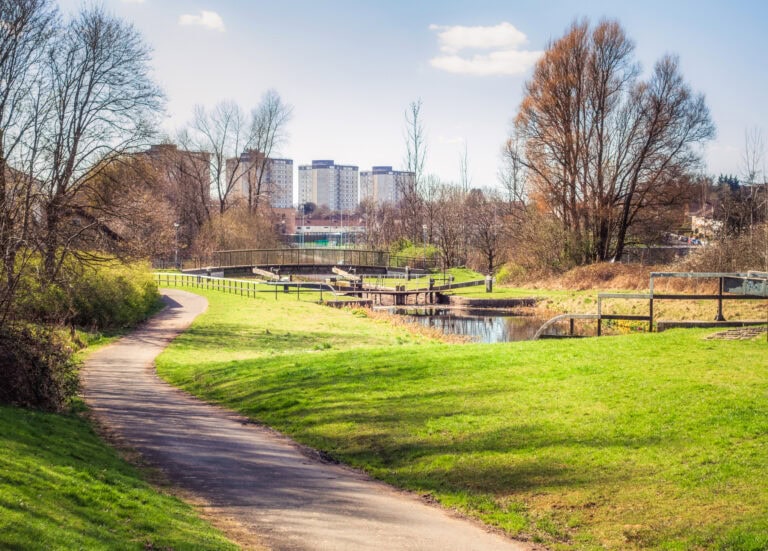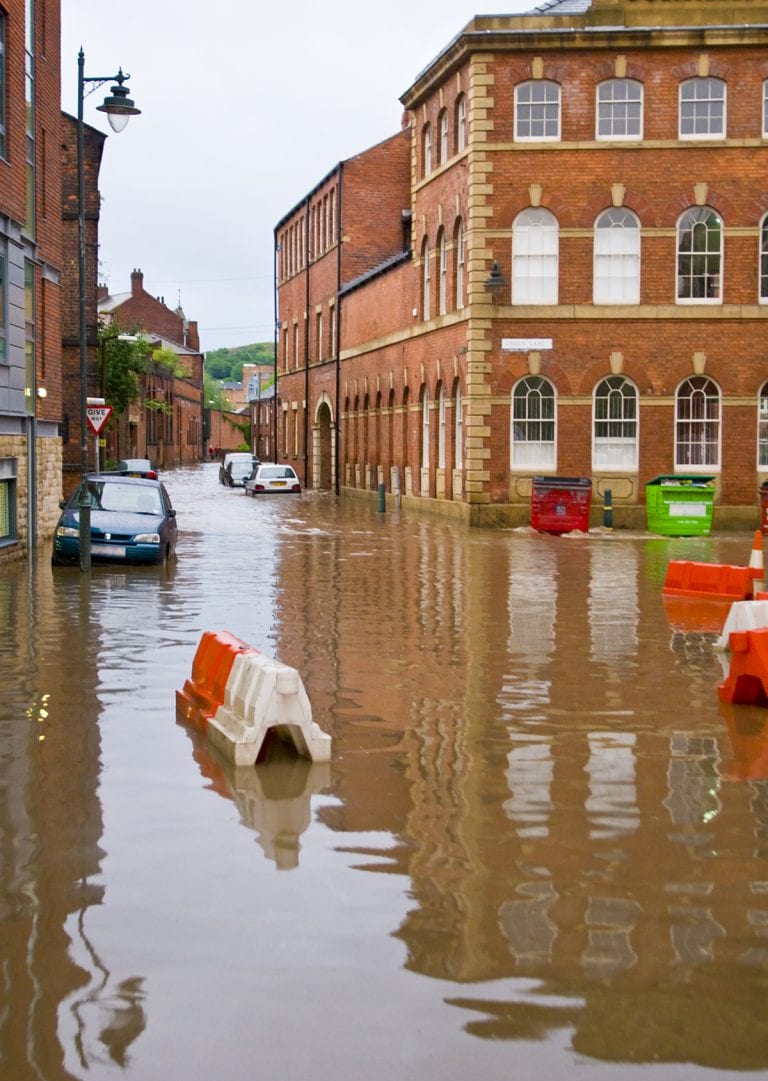UKGBC empowers local authorities to develop nature positive, climate resilient communities

Following Climate Adaptation Day at COP27, and in the run up to COP15 this December, the impact of climate on communities, and nature’s role in adapting to and mitigating a changing climate, is in the spotlight. Nature-based solutions (NBS) offer an approach for our cities and built environments to protect nature, as well as become more resilient to the impacts of climate change. Whilst many have already included NBS as part of their national climate action plans, the UNFCCC has recently stated that greater investment is needed in this area, indicating that finance for NBS must be tripled by 2030[i].
In the UK, local authorities have several responsibilities and obligations related to protecting nature and ensuring new and existing development. Local authorities therefore have an essential role in promoting the effective use of NBS in their local area, protecting communities from climate risks and securing nature’s recovery.
Published today, the ‘Nature Recovery & Climate Resilience Playbook ’ presents local authorities and planning officers with a comprehensive toolkit to enhance the sustainability of new and existing development, in order to support both biodiversity and climate resilience using nature-based solutions. It aims to promote a consistent, user-friendly approach to sharing best practice, that will enable authorities to benefit from shared learning, common resources, and mutual confidence; whilst also providing stability for industry around the requirements expected from it across different parts of the country.
The Playbook has been designed to be used and adapted to support the ‘day job’ of officers, as well as elected members with responsibility for sustainability, planning and regeneration within different authorities. For example, it can be used to inform planning policy in relation to the new development, to enable positive engagement with developers who want to support an authority’s aspirations, as well as support local strategy development and target setting.
The Playbook demonstrates how protecting nature and enhancing resilience can, and should, be embedded into decision-making at every level within local government. It offers interventions at various levels of decision-making across housing and planning strategies, from cross boundary collaboration with neighbouring authorities to local planning policy. The toolkit also identifies a number of no-regrets planning interventions that can deliver immediate positive impact, such as requiring bee bricks, swift and bat boxes. It also illustrates how wider environmental and socio-economic objectives can be delivered across local areas through prioritising biodiversity.
Whilst local action to secure resilience and protect nature is critical, the Playbook also notes how local government’s ability to drive sustainable development in their area must be accompanied with stronger national policy. The Playbook therefore calls for strong national policy, which sets out clearly a future trajectory of escalating minimum standards – which local authorities can move in advance of, if they choose to, whilst maintaining consistency in terms of metrics and approach. The toolkit notes how a patchwork of different standards in different locations is challenging for developers, therefore attempts to balance the need for consistency with the need to enable local government to set suitably ambitious policy.
UKGBC’s Policy Advisor, Philip Box said:
‘Climate projections show that the UK will see hotter, drier summers, and wetter, windier winters. These conditions represent a significant risk to the UK built environment as it is not sufficiently prepared. Our changing climate is also resulting in nature’s decline and putting further species at risk. Through enhancing measures to promote the effective use of nature-based solutions, local and combined authorities can help address both crises across their communities.
UKGBC’s new toolkit is designed to equip local government and planning officials with helpful solutions and best practice policies that will enable local authorities to go further and faster on enhancing climate resilience, whilst ensuring new development actively support nature’s recovery.‘
This toolkit has been made possible thanks to the UKGBC Resilience & Nature-Based Solutions Programme Partners: The John Ellerman Foundation, ARUP, BuroHappold, CBRE, Federated Hermes, Hoare Lea and ISG
[i] https://unfccc.int/news/finance-for-nature-based-solutions-must-triple-by-2030
Related downloads
Download The Nature Recovery And Climate Resilience Playbook
Download The Executive Summary
Related
A new resource for local authorities: New Homes Policy Playbook

Adapt or perish… the challenge of building climate resilient cities

Being at home shows us exactly why we need more green homes

New interactive map shows local authorities leading the way on home retrofit

